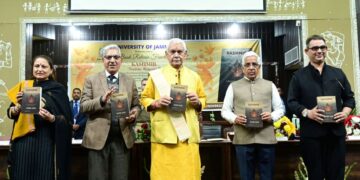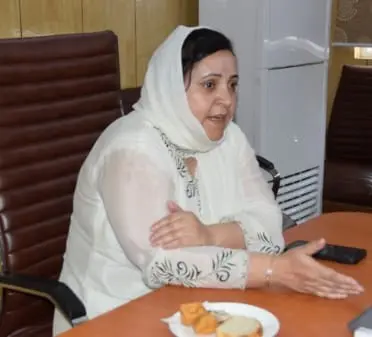Srinagar, Aug 20: The High Court of J&K and Ladakh on Wednesday asked the Union Territory government to file within four days its reply in a public interest litigation (PIL) that alleged that despite large-scale seizure of rotten meat in Kashmir, the responsible authorities have failed to take effective and sustained action to prevent the menace.
The direction was ordered by a division bench comprising Chief Justice Arun Pillai and Justice Rajnesh Oswal in the PIL filed by a young lawyer, Mir Umar from Kupwara, through advocate Shafqat Nazir.
The petitioner arrayed top level bureaucratic machinery of the UT as respondents ranging from Chief Secretary, Commissioner Secretaries to Government Consumer Affairs & Public Distribution Department, Health and Medical Education Department, Commissioners of the Srinagar and Jammu Corporations.
Praying urgent judicial intervention to address “the serious and ongoing public health crisis in J&K, particularly Kashmir Valley”, the PIL said “the crisis stems from the widespread transportation, sale and distribution of rotten, unhygienic, and unsafe meat and poultry products that enter the Union Territory without mandatory veterinary health certification or public health inspection”.
It stated that such unsafe food items pose a grave threat to the lives and health of thousands of unsuspecting consumers. “It exposes them to potentially fatal diseases including food poisoning, Salmonella, E. Coli contamination, and other zoonotic infections”, it said.
The petitioner asserted “despite repeated seizures and media reports highlighting the problem, responsible authorities have failed to take effective, sustained action to prevent the menace”.
The PIL said that this inaction constitutes a violation of the fundamental right to life under Article 21 of the Constitution of India and breaches multiple statutory provisions.
“The State’s constitutional duty under Article 47 to improve public health and nutrition is being undermined by this neglect,” read the petition.
It sought “enforcement of food safety laws, accountability of authorities, and directions for the establishment of stringent preventive and monitoring mechanisms to ensure that only safe, hygienic meat and poultry products are permitted for sale in the Union Territory”.
The petition prayed for exigent judicial intervention to address a grave public health crisis in J&K, particularly Kashmir Valley, “arising from the large-scale sale of rotten, unhygienic, and unfit-for-consumption meat, fish and poultry products”.
The menace, according to the petition, has grown due to the influx of such products from outside the Union Territory without the mandatory veterinary health certification or public health inspection posing an imminent threat to the lives of lakhs of gullible consumers.
It referred to the recent seizure by enforcement agencies “of spoiled and decaying meat and poultry from various markets, hotels, roadside eateries, and retail meat shops across the Kashmir Valley”.
It added “rotten and germ-infested fish and dairy products have been discovered and destroyed in the Jammu division. Credible reports published in leading newspapers and aired on television channels reveal that such meat and poultry is transported into J&K from different parts of the country in unhygienic conditions, without cold-chain facilities, and without requisite certification by authorised veterinary officers”.
These acts, according to the petitioner, are in clear violation of statutory provisions intended to safeguard public health.
The medical conditions arising out of these rotten products “can lead to prolonged hospitalisation, long-term health complications, or even death, thereby amounting to a direct assault on the citizens right to life and health”, contended the petition.
“The inaction and indifference of the concerned public authorities, including the Directorate of Food Safety, the Municipal Corporations, the Health Department, and the law enforcement agencies, in curbing this menace amounts to gross administrative negligence and a flagrant dereliction of statutory duties. Despite repeated media reports, seizures, and public outcry, no sustained preventive mechanism has been implemented to ensure that only safe and hygienic meat is made available for public consumption,” it said.
The petitioner contended “meat and poultry consumption is predominantly by the Muslim majority population, for whom adherence to ‘Halal’ dietary principles is not merely a preference but a religious obligation. Given this demographic reality, ‘Halal certification’ of all meat and poultry products is not just desirable, but necessary to safeguard religious rights, public health, and consumer trust.”
The recent discovery of large quantities of rotten meat in Kashmir has underscored the urgent need for strict regulatory mechanisms. Such incidents reveal serious lapses in quality control, hygiene standards, and supply chain monitoring, it said further.
The PIL held that without a formal ‘Halal certification’ regime backed by regular inspections, unscrupulous traders can exploit the market by supplying substandard, unhygienic, or even non-Halal meat to the local population”.








